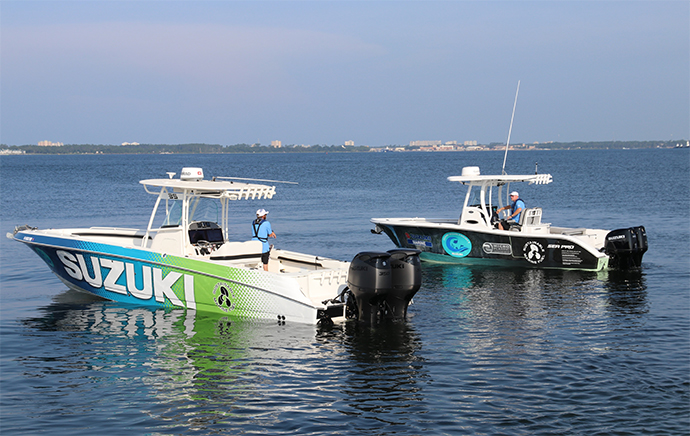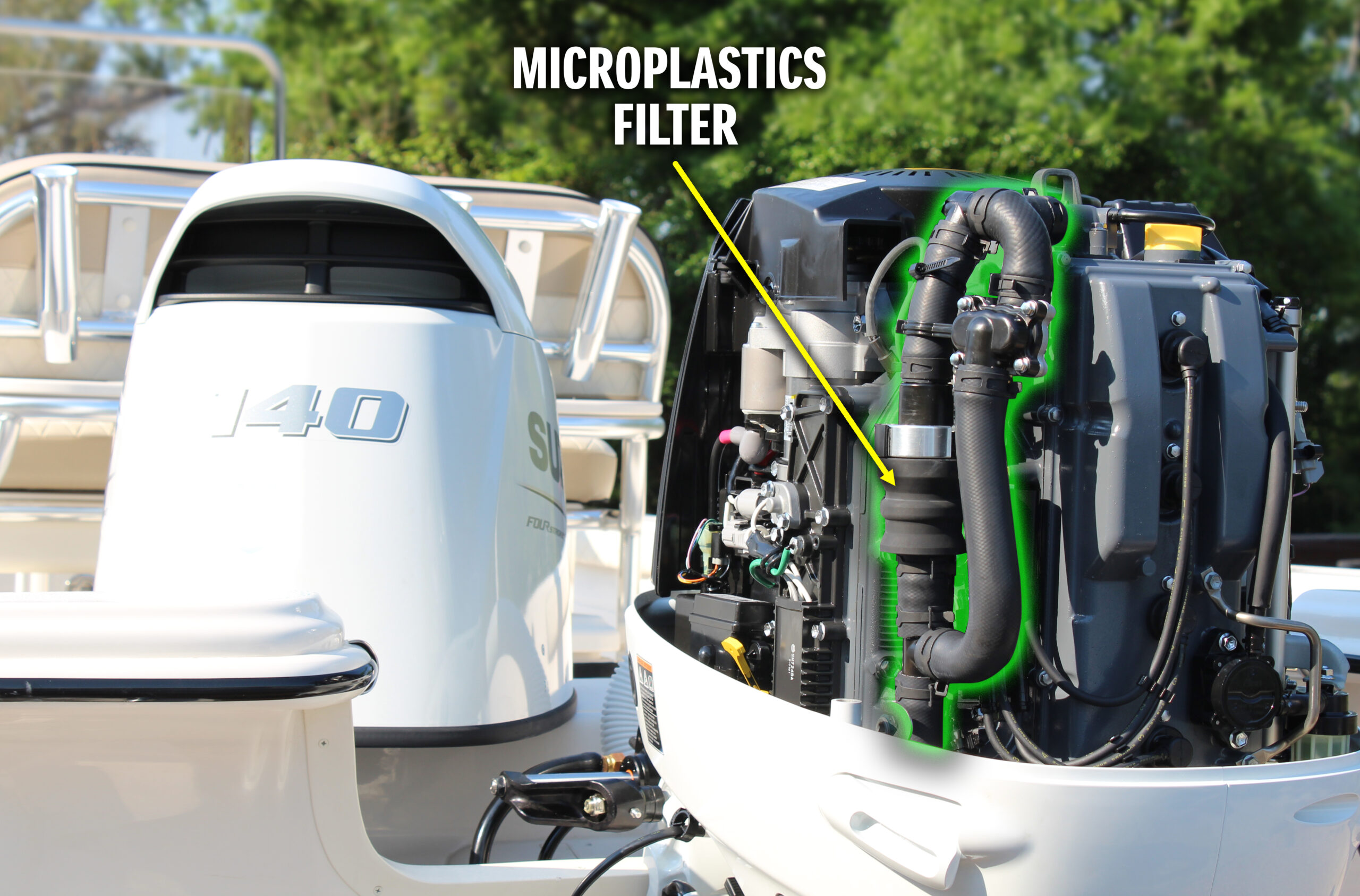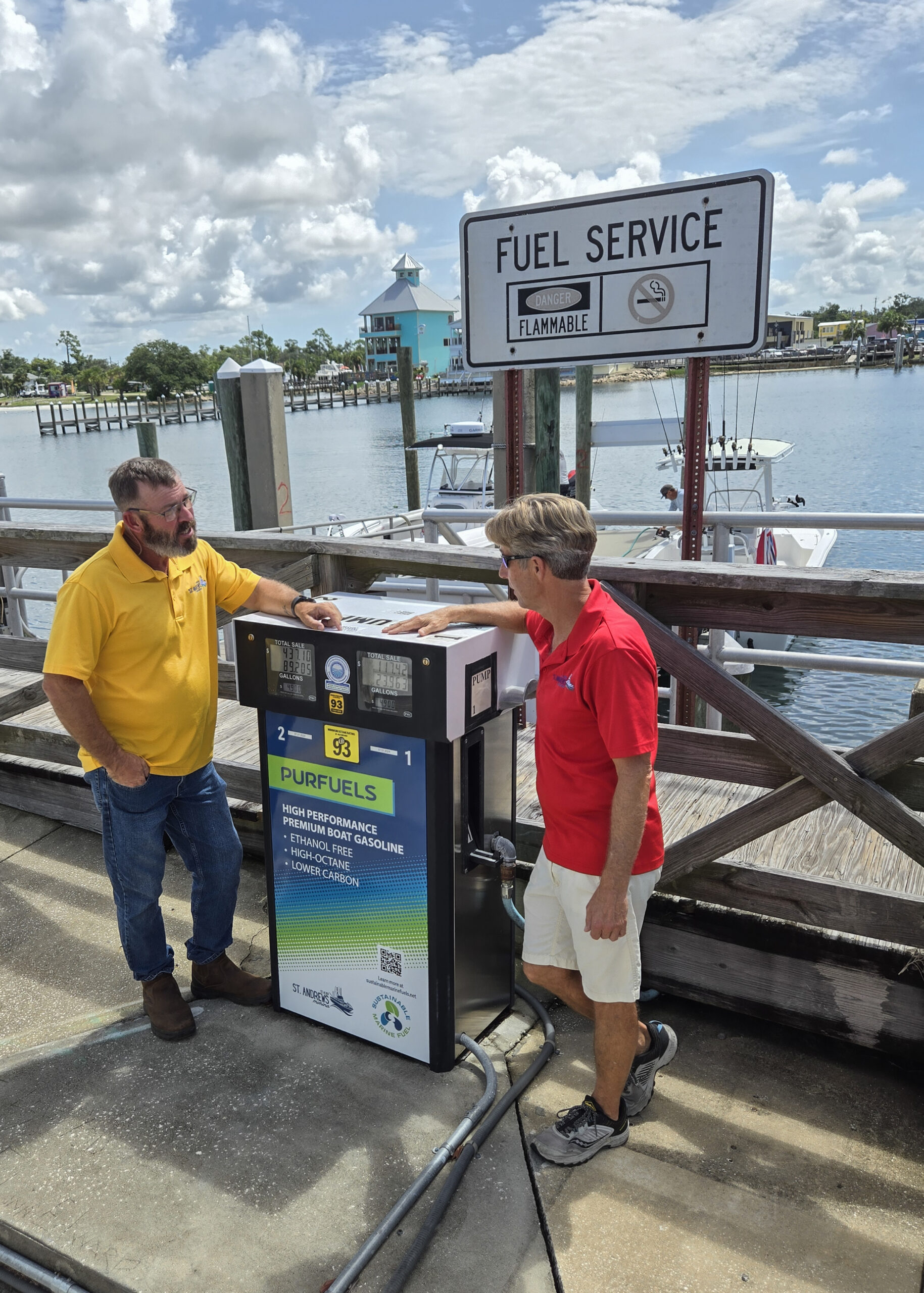Sustainable Marine Fuel Arrives Dockside
Written by: Tim Banse
Good news for our physical world and progeny: Suzuki Marine’s white lab coat engineers have grafted a micro-plastic filter onto its higher horsepower outboards. Plumbed into the cooling system, running the outboard motor neatly traps plastic pollution for later disposal. This design flows raw water that has already cooled the powerhead. Should the filter become clogged, a bypass hose maintains ample coolant flow.
As simple as the sea is salt, microplastics are plastic particles smaller than 5 mm/0.20 inches in size, essentially microfibers derived from clothing, microbeads, plastic glitter, and plastic pellets. Secondary microplastics arise from the degradation of larger plastic products. Sources of secondary microplastics include water and soda bottles, fishing nets, plastic bags, microwave containers, tea bags, and car tires.
These pollutants accumulate in the ecosphere and are detrimental to our health. Plastics degrade over hundreds to thousands of years with a high probability of ingestion. So, it should come as no big surprise to learn microplastics have been detected in human blood and semen.
It gets better. Besides waging war on microplastics, Suzuki is minimizing the use of petroleum-based plastics in the packaging of its outboard motors and repair parts. Green Planet, a conventional polystyrene foam replacement, is a 100% biomass-derived polymer that decomposes in seawater. Supplementing the cushioning of Green Planet is an eco-friendly two-layer structure of corrugated cardboard partitions.
Finally, Suzuki and the National Marine Manufacturers Association have announced participation in a program to promote sustainable fuel for recreational boating by decarbonizing it. With this program comes the availability of a non-ethanol, 93-octane sustainable marine fuel derived from refining cooking oil, waste, and plant-based materials. Known as Hyperfuels Purfuels, this high-performance 93-octane gasoline reduces recreational boating carbon emissions by 30 percent more than E10 gasoline.
According to an NMMA representative, this sustainable fuel only costs about twenty cents more per gallon than the typical 89-octane marine gasoline sold dockside. Blended with Ethyl Tert-Butyl Ether (ETBE), an additive commonly used to oxygenate gasoline blends, Purfuel pays big dividends by way of extended engine longevity and serious detonation protection due to its lofty 93-octane rating. Purfuels reduces emissions, thereby lowering the environmental impact of recreational boating.
The key to the Purfuel program’s success will lie in making this fuel more accessible to the boating public at numerous local marinas and fuel docks, which brings up the salient point that besides the fuel’s intrinsic benefits, the real eyebrow-raiser of this sustainable fuel project is the leadership of Suzuki Marine and its partners in establishing the infrastructure to place fuel dockside. At the onset, their collective vision is to promote the widespread use of sustainable fuels in marinas in the Florida Panhandle. Now, in the early days, the project began with a city-owned marina in Panama City, Florida, with plans to expand fuel docks statewide.
Suzuki points out that its corporate effort exemplifies the best principles of Kizuna, the Japanese term for good relationships, friendship, and close ties. To create a win-win-win situation that is good for the environment, the marine industry, and recreational boaters.
Keyword : emissions, Hyperfuels Purfuels, Kizuna, marine innovation., micro-plastic filter, microplastics, outboard technology, outboards, sustainable boating, Suzuki, suzuki marine emissions, Hyperfuels Purfuels, Kizuna, marine innovation., micro-plastic filter, microplastics, outboard technology, outboards, sustainable boating, Suzuki, suzuki marine



